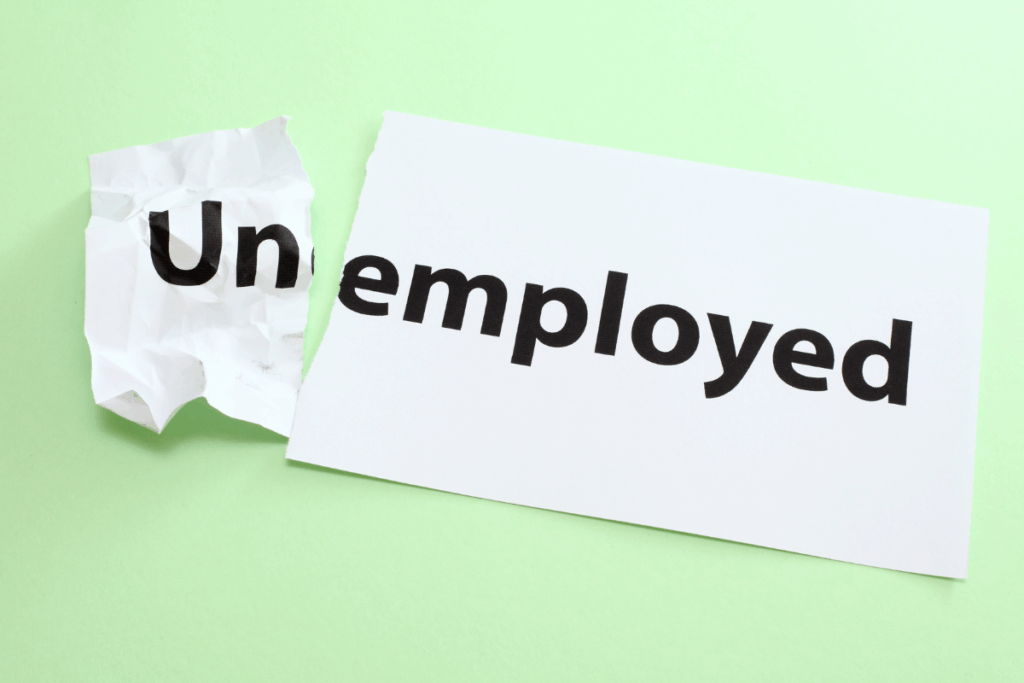Can I Get a Licensed Moneylender Loan If I Am Unemployed?
Facing unemployment is often one of life’s most difficult challenges. When regular income disappears, mounting bills and daily expenses can feel overwhelming. In Singapore many individuals wonder whether obtaining a loan from a money lender Singapore is even possible without a job. Is it realistic to get a personal loan Singapore while unemployed? In this article I discuss how licensed moneylenders assess applications, what you must know about borrowing safely, and alternative paths to consider when your finances are uncertain.
How Licensed Moneylenders Work in Singapore
Licensed moneylenders in Singapore are regulated under the Moneylenders Act, which is overseen by the Ministry of Law. Their operations must conform to strict rules intended to protect borrowers from exploitative practices. Among these rules are caps on interest rates and fees, transparency in contract terms, and obligations to ensure that borrowers are not unduly burdened by debt.
One key rule is that licensed moneylenders may charge up to 4 per cent per month in interest. Late payment interest is similarly capped at 4 per cent on the overdue amount. Administrative fees and late charges must also remain within limits prescribed by law. These safeguards help ensure that borrowers have some protection and know upfront what obligations they face.
Even though licensed moneylenders must abide by these regulations, they still assess each loan application carefully. They must ensure that the borrower can reasonably repay. So being unemployed does not automatically disqualify you but it does put you in a tougher position.
Can an Unemployed Person Get a Loan?
Yes, in many cases you can still apply. But approval is uncertain, and the terms may be less favourable. Licensed moneylenders are required to assess more than just your current employment status. They will look at your overall financial picture, including alternative income sources, credit history, and whether you can present additional assurances.
Here are some of the factors that matter:
- Credit History
Even if you have no job currently, a clean and positive credit history (past loans or payments made on time) works in your favour. If you have proven that you are reliable in meeting financial obligations before, lenders may view you as lower risk. - Alternative Income Sources
Unemployment does not always mean zero income. You might have freelance or contract work, rental income, CPF disbursements, or government assistance. These sources can form part of your repayment capacity. - Assets and Savings
If you hold some savings in your bank account or own assets that can be liquidated, these provide additional assurance that you can meet repayment obligations even without a steady job. - Guarantor or Co-borrower
Some moneylenders may allow you to apply with a guarantor who agrees legally to shoulder repayment if you cannot. A co-borrower or guarantor with stable income significantly strengthens your case. - Loan Size and Purpose
Choosing a modest loan amount and clearly describing its purpose (for example, medical bills or urgent utility payments) helps persuade lenders that the risk is limited. - Documentation and Verification
Because your situation is riskier, licensed moneylenders will typically require more documentation. These may include bank statements, prior payslips, proof of any alternative income, or letters verifying contracts or freelance work.
You should approach the application with realistic expectations. You may be approved for a smaller loan amount, or with a shorter tenure, or stricter terms. The lender has a duty not to provide credit that you cannot reasonably repay.
Why Some Personal Loan Applications Get Rejected
If your application is denied, it is often because the lender deems the risk too high. Here are common reasons:
- Insufficient documented income
- Poor credit history or prior defaults
- Inadequate collateral or assets
- No guarantor or co-borrower to back you
If your application for a personal loan Singapore is rejected, you can take steps to strengthen next time. For useful advice in such situations see What Happens If Your Personal Loan Gets Rejected in Singapore: What to Do.
Responsible Borrowing: What You Must Know
If you do proceed with a loan while unemployed, you must do so responsibly. Borrowing without a realistic repayment plan is a pathway to deeper trouble. Here are important safeguards:
- Borrow Only What You Truly Need
Don’t treat the loan as a chance to spend beyond essentials. Restrict yourself to what you absolutely need food, rent, utilities, medical bills. - Fully Understand the Terms
Read the contract carefully. Pay close attention to interest, repayment schedule, late fees, and whether there are hidden charges. If unclear, ask the lender to explain in plain language. - Compare Multiple Offers
Even within licensed moneylenders, terms differ. Shop around, compare interest rates and repayment flexibility. You might find a friendlier option. For tips on choosing a good provider, see 10 Tips in Finding the Best Moneylender in Singapore. - Have a Repayment Strategy
Before signing, map out how you will repay even if you secure temporary work or other income sources. Avoid assuming circumstances will magically improve. Be conservative in your projections. - Keep Documentation
Keep copies of all agreements, receipts, and communications. Having these records protects you if disputes arise. - Avoid Relying on Unlicensed Lenders
Under no circumstance should you turn to unlicensed moneylenders (loan sharks). They typically charge exorbitant rates, use intimidation, and operate outside legal recourse. Always verify a lender via the Registry of Moneylenders under the Ministry of Law.
To learn how to spot safe providers, you may also check Where to Get a Short Term Loan in Singapore.
Exploring Alternatives Before Borrowing
When income is unstable nor nonexistent it often pays to explore alternatives before taking on debt. Here are some possible options to consider:
Government Aid and Social Assistance
Singapore has several schemes that help people in financial distress. Some are:
- ComCare Short-to-Medium Term Assistance
Offers help with household expenses, utilities, food, and medical needs. - Temporary Relief Fund
Helps families with urgent financial needs during temporary hardship. - Workfare Income Supplement
For lower income older workers, but may provide some buffer if you manage to get some work.
Such programmes help alleviate immediate pressures so you have breathing room without turning to credit.
Community and Charitable Support
Religious organisations, local community centres, and social service agencies may provide aid, subsidies, or emergency funds in times of hardship. Reaching out to them might temporarily ease your financial burden.
Financial Counselling Services
Agencies such as Credit Counselling Singapore (CCS) provide counselling, debt consolidation advice, and structured repayment plans. They can help you understand your financial options and avoid falling into debt traps.
Small Scale Income Generation
Even small gigs, freelance assignments, micro-tasks, delivery work, or part time roles can generate income that improves your repayment profile and gives you more control over borrowing decisions.
If you are curious about qualification criteria for business-related financial support, see How to Qualify for a SME Loan in Singapore and What Are the Documents Required for SME Loan in Singapore.
Why Sticking to Licensed Moneylenders Matters
When financial stress is high, unscrupulous lenders may approach you with quick promises and minimal verification. These are typically unlicensed moneylenders, whose practices are not regulated. Borrowers under these schemes often find themselves trapped in cycles of debt, threatened or harassed for repayment, and without legal protection.
Licensed moneylenders must comply with consumer protection laws, offer transparent contracts, and operate within interest and fee limits. Always verify a lender’s name on the official Registry of Moneylenders. Never deal with individuals who solicit loans via social media, WhatsApp, or SMS claiming to be licensed.
For guides on broader financial literacy to strengthen your position, you may refer to resources like Differences of Active and Passive Investing in Singapore, Best Credit Cards in Singapore, or Best Robo Advisors in Singapore: Syfe vs DBS vs StashAway.
Interest Rate Caps and Key Legal Safeguards
It is important to be familiar with the legal framework that protects borrowers. Some key safeguards:
- Interest Rate Cap
Licensed moneylenders cannot charge more than 4 per cent per month in interest, regardless of your employment status. - Late Interest Cap
If you miss payments, the additional interest is limited to 4 per cent on the overdue amount. - Fee Limits
Administrative and late fees are capped and must be clearly disclosed in the loan contract. - Cooling-off Period
You have a grace window after signing a loan contract to cancel it under certain conditions (subject to rules). - Debt Recovery Guidelines
Licensed lenders must follow proper procedures approved by MinLaw when collecting debt. They cannot resort to harassment or coercion.
By staying informed about these rules, you reduce your exposure to unfair treatment or illegal practices.
Tips for Strengthening Your Application
Given that being unemployed puts you at a disadvantage, here are steps you can take to improve your chances:
- Maintain a clean credit record by paying what you owe on time, even small obligations.
- Build or maintain emergency savings, even modest amounts.
- Document alternative income sources, contracts, or work prospects.
- Secure a guarantor or co-applicant with stable income if possible.
- Start by applying for a small loan amount.
- Be transparent with the lender about your situation. Honesty helps build trust.
Final Thoughts

Unemployment can be frightening. But being without a job does not mean all financial doors are closed. In Singapore it is possible to obtain a loan from a licensed moneylender even if you are unemployed—provided your overall financial standing, credit record, and alternative income sources demonstrate you can repay.
However, borrowing in such a vulnerable position carries significant risk. Always approach credit cautiously, borrow only what you need, and ensure that you understand all terms clearly. Explore alternatives such as government aid, community help, financial counselling, or small income generating endeavours.
If you ever find yourself uncertain whether a lender is legitimate, consult resources like the Registry of Moneylenders or trusted financial advisory services. And when evaluating offers or rejected applications, consider reading through the wealth of financial literacy resources linked above as you build your knowledge.
Though this period may feel uncertain, with responsible decisions and support you can emerge more resilient. Stay informed, stay cautious, and lean on help where it exists.
